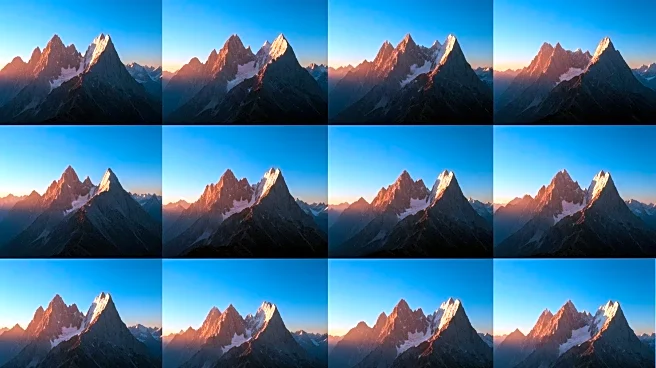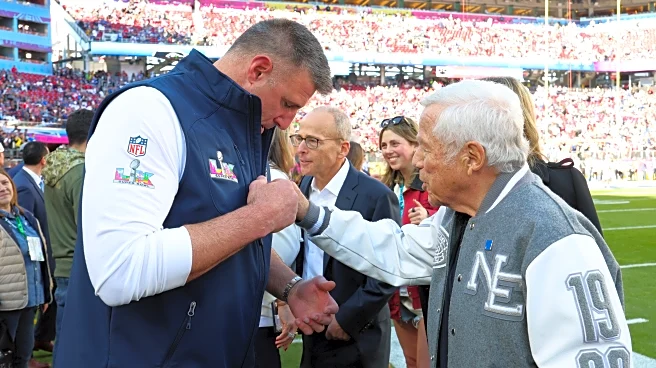What is the story about?
What's Happening?
Danielle Wolfson, the first Israeli woman to summit Mount Everest, has successfully climbed Manaslu, the world's eighth-highest peak at 8,163 meters. This achievement marks the fourth peak in her ambitious goal to conquer all 14 of the world's mountains over 8,000 meters. Wolfson joined a 7 SUMMIT expedition led by Russian-Jewish mountaineer Alexander Abramov, where she was the only woman among 12 men. Despite harsh conditions, including frostbite and intense radiation burns, Wolfson completed the climb, unfurling the Israeli flag at the summit. Her journey is driven by personal loss and a promise made during her recovery from a severe injury 15 years ago.
Why It's Important?
Wolfson's accomplishment is significant as it highlights the growing presence and achievements of women in extreme sports and mountaineering, traditionally male-dominated fields. Her success serves as an inspiration to aspiring female climbers and adventurers worldwide, demonstrating resilience and determination. Additionally, her journey underscores the importance of overcoming personal challenges and pushing beyond perceived limits, offering a powerful narrative of perseverance. Wolfson's climbs also foster international camaraderie, as she reports no signs of antisemitism or anti-Israel sentiment among climbers from diverse backgrounds, including Iran.
What's Next?
Wolfson plans to continue her quest to summit all 14 peaks over 8,000 meters. She aims to climb Shishapangma or Cho Oyu next year, depending on accessibility in Tibet, and has set her sights on Kanchenjunga in April. Her future expeditions will require significant financial and logistical planning, as well as continued physical preparation to ensure her safety and success. Wolfson's determination to complete this challenging project will likely attract further attention and support from the climbing community and sponsors.
Beyond the Headlines
Wolfson's journey offers insights into the psychological and emotional aspects of extreme sports, particularly the role of personal motivation and overcoming adversity. Her story also raises questions about the accessibility and inclusivity of mountaineering for women and individuals with disabilities, potentially influencing future policies and support systems in the sport. Furthermore, her experiences may contribute to broader discussions on cultural exchange and diplomacy through shared challenges in international expeditions.
















